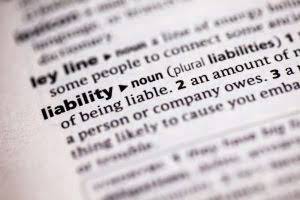
It’s almost impossible to do so without reliable financial records produced through accurate accounting. When a customer owes you money, it appears as Accounts Receivable (AR) on your balance sheet, which is generated automatically by your accounting software or manually by you or your accountant. Potential investors, stakeholders, or buyers will expect accounting records vetted by a CPA (Certified Public Accountant) that prove your business is profitable and on track for growth. It is a means through which information about a business entity is communicated.
- All businesses pay income tax unless the company is considered a partnership.
- If those are tips your business can benefit from right now, it might be time to hire an accountant.
- Again, the records, classifications, and summaries are made for only those transactions and events that are of a financial nature or character.
- Beyond the tools a company may use, it’s also critical to have a consistent system to track all inventory.
- Gross margin is a vital metric for businesses, showing how much money is left after covering the cost of goods sold.
- All of our content is based on objective analysis, and the opinions are our own.
- Equity capital specifies the money paid into a business by investors in exchange for stock in the company.
What Are Accounting Standards?
So the complete recording of transactions cannot be made and trail balance cannot be prepared. Accounting is the medium of recording business activities and it is considered a language of business. You can use accounting to track cash flow and quantify your company’s financial health. In addition, accounting makes it possible to create financial projections to plan for the future and anticipate sales and expenses.

What is Departmental Accounts? Advantages, Objectives, Types, Methods
Federal tax returns must comply with tax guidance outlined by the Internal Revenue Code (IRC). Luca Pacioli is considered «The Father of Accounting and Bookkeeping» due to his contributions to the development of accounting as a profession. An Italian mathematician and friend of Leonardo da Vinci, Pacioli published a book on the double-entry system of bookkeeping in 1494.

Government
To prepare for owning and running your company, you must understand crucial expenses, like startup costs, payroll costs, taxes and inventory expenses. Companies hold a certain amount of inventory, or finished products/goods, that have not yet been sold. It’s important that a company does not hold too much or too little of an unsold product or service. To ensure Bookstime that doesn’t happen, a component of business accounting is managing and reviewing inventory. The IRS outlines these different business taxes as income, excise, employment, and self-employment taxes. All businesses pay income tax unless the company is considered a partnership.
- In short, we can say that accounting is the language of business by which all the financial and other information are communicated to various interested parties.
- Hence, due to the lack of objectivity income arrived at may not be correct in certain cases.
- For a small business, accounting involves tracking money flow in various forms, including operating expenses (e.g., marketing, utilities, rent), cost of goods sold, accounts receivable and sales.
- Accounting involves recording, classifying, organizing, and documenting financial transactions and data for internal tracking and reporting purposes.
- The second set of rules follows the cash basis method of accounting.
- It must include monetary figures – say for example, $20,000 salaries expense.
- At the end of the fiscal year, financial statements are prepared (and are often required by government regulation).
Proper planning, consultation with tax professionals, and leveraging tax software can help remote workers remain compliant and optimize their financial outcomes. Introductions to basic accounting often identify assets, liabilities, and capital as the field’s three fundamental concepts. Assets describe an individual or company’s holdings of financial value.

From revenue goals to profitability, business expansion, scaling up, and everything in between – your business finances drive most of the bigger decisions related to growth. Stick around for useful insights, especially if you want to truly understand business accounting for small businesses. Certified public accounting and management accounting are two of the profession’s most common specializations. Auditing and forensic accounting represent other important accounting specializations. Accountants calculate ROI by dividing the net profit of an investment by its cost, then multiplying by 100 to accounting meaning in business generate a percentage.
Owners/Shareholders
The simple things we do and encounter everyday can actually be related to some level of accounting. You make budgets, count change and check the receipts from the supermarket. You may also have listed things you balance sheet spent your money on at one point in your life. For example, hiring an additional employee is qualitative information with no financial character.